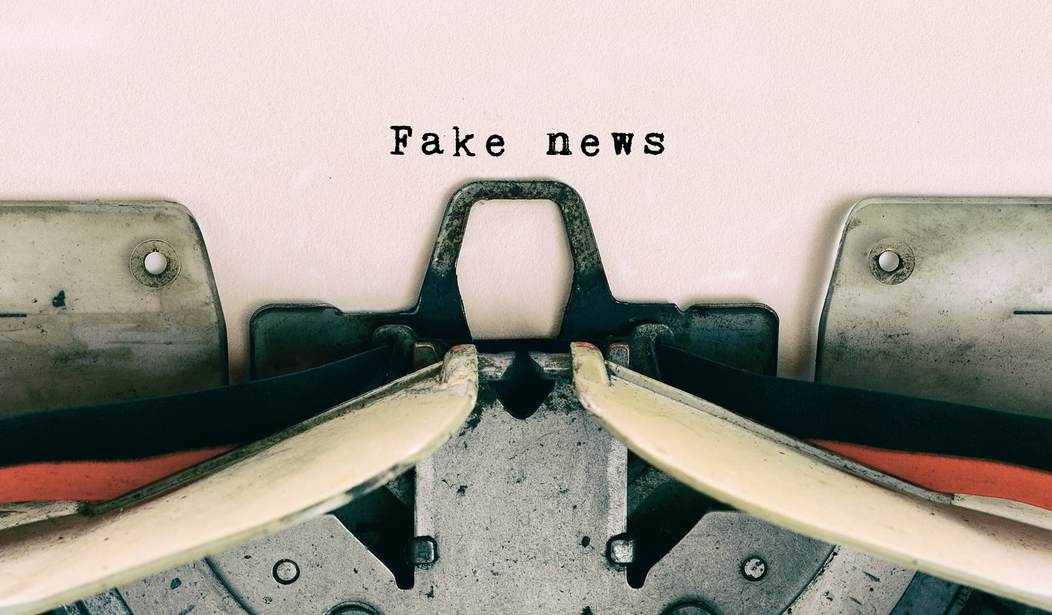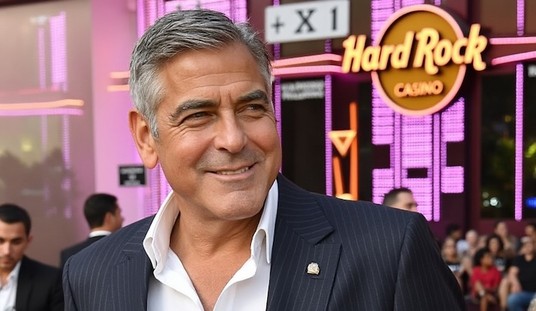It’s a brand new year, and you know what that means: time for New Year’s resolutions! Untold numbers of people will make a resolution this year, and most folks will break those resolutions. I know, because I’m one of them (“This is the year I’ll drop those pounds,” I tell myself year in and year out).
Just because I’m terrible at keeping resolutions doesn’t mean I can’t suggest them for others. I mean, who’s in more dire need of a change in patterns of behavior these days than the media? That’s right, I have five New Year’s resolutions that are perfect for the media, and I’m going to share them with you. Enjoy!
1. Give President Trump the benefit of the doubt when he does something worthwhile
I’ve made no secret that I was a never-Trumper during the 2016 election, but after he won, I decided to give him the benefit of the doubt. Even though I’m willing to call balls and strikes on the current administration, I’m more than happy to give him credit when he succeeds. In 2018, I think the media should begin to do the same.
For over a year now, the press has operated with a rather simplistic calculus: anything Donald Trump does is bad. It’s time for the media to vary the script now and then because the president has done some terrific things – sometimes without even tweeting about them!
Don’t get me wrong: it’s perfectly fine to not agree with everything he does, but the reporters don’t have to treat every Trump sneeze as a dog whistle to the alt-right or equate every innocuous tweet as a sign of creeping fascism. There’s nothing wrong whatsoever with acknowledging that he’s done something well once in a while.
(There’s a corollary to this one for outlets like Fox News and most right-of-center talk radio hosts: you can call Trump out when he does something dumb or misguided.)
2. Prioritize getting the facts straight over being the first to report
Our 24-hour news cycle has created a disturbing trend in which media outlets often breathlessly report breaking news items without vetting the news before going on the air with it. I understand the pressure. With so many ways for Americans to get their news and with the need to fill airtime around-the-clock, when events break, there’s enormous pressure to be first to the punch.
But this problem doesn’t limit itself to broadcast media. In the social media age, writers and editors scramble to be the first to post a breaking news event, and on social media, the problem may be worse.
It’s bad enough that false stories – not just the dreaded “fake news” but also accounts with sloppy reporting and fact-checking – make it on air or on the web to begin with. It’s even worse that the corrections to the bad reporting get buried in the coverage or get fewer likes and retweets than the initial story.
Just because celebrities and athletes go off half-cocked and make outrageous claims doesn’t mean that the media should do the same with their reporting. Take a little time to get the facts straight before sharing an even with the world. It just might do wonders for an outlet’s credibility.
3. Treat Americans who don’t live on the coasts with some respect
It’s no secret that most of the mainstream media place their focus on people who live in the big cities on the coasts. It’s also not a surprise when I say that these same outlets treat everyone else with disdain. The term “flyover country” comes to mind because it demonstrates just how the press views the vast expanse between New York and California.
Compared to the sybaritic mile-a-minute lifestyles of urbanites, the lives of rural and suburban Americans don’t come across as exciting, but thinking about how stories affect more than city dwellers would help them craft stories in a way that reaches more people. But that kind of change starts with getting to know and care about more people outside of the coastal urban areas.
(Bonus tip for celebrity gossipers and sports journalists: most of us don’t care about the Kardashians, Lena Dunham, or European soccer.)
4. Report events without using them to advance an agenda
Seems like we can always count on the media to push left-leaning talking points to go along with a news item. Adding an agenda to a story is nothing new, but it does seem that the media get increasingly bold about it every year.
Here’s the thing: more often than not an event is simply just an event rather than some piece of an overarching narrative that leads to social liberalism combined with government control. A shooting is usually the work of a madman or terrorist, not a sign that gun confiscation (no matter how “common sense” a politician makes it sound) is the answer to all our problems. In the same way, nutbar parents who think it’s perfectly fine to let their son dress as a girl aren’t a sign of a wave of transgenderism flowing over our nation; instead, those parents are anomalies compared to the overwhelming majority of sensible moms and dads everywhere.
Tropical storms and wildfires are weather events, and they can be tragic, but they don’t signal catastrophic climate change. Warm temperatures in the summer and cold fronts in the winter are indicative of the seasons rather than harbingers of a global apocalypse that can only be staved off by the government telling us how many kids to have, what to drive, or how to air condition our homes.
The less the press reports that the sky is falling – literally or metaphorically – in conjunction with a news event, the more we can process what’s going on in the world in our own way. Just tell us what’s happening, and we can connect the dots ourselves.
5. Resist the urge to condescend to readers and viewers
For the longest time, the portrayal of anchors on movies and televison was that of banal, airheaded buffoons who only knew what was on the teleprompter. At the same time, the hardworking cub reporter was the one breaking the story and fighting for some greater good. Of course, both portraits of journalists have been exaggerated, although these days every reporter and anchor sees himself or herself as an elite purveyor of wisdom whose editorializing is more important than the facts.
In the mainstream media, there’s a prevailing sense of “we know better than you do.” From news anchors turning themselves into analysts to the politicization of sports from much of ESPN and others like Bob Costas, the smugness is pervasive and painfully obvious.
Instead of delivering the facts, reporters, news writers, and anchors have turned into self-styled experts, but their only expertise is their opinion – often when opinions aren’t necessary at all. Not every news report has to become a crusade, and not every article has to become a manifesto.
Viewers and readers don’t enjoy being condescended to. It’s bad enough that we have to have actors and musicians preaching to us; we don’t want journalists treating us as if we need everything explained to us (I’m especially looking at you, Vox). Don’t insult the intelligence of your audience – well, most of the audience, anyway – and leave the opinions to the analysts. And above all, stop telling the audience what to think!
***
There you have ‘em. What do you think are the chances that the media will take my advice? Yeah, I’m not putting much stock in it either.










Join the conversation as a VIP Member